19 November 2023
The Indian Institute of Science (IISc) and the Office of the Principal Scientific Adviser to the Government of India (OPSA) organised a day-long summit titled “Dialogue 2023: Expanding Science and Technology Horizons” on 18 November 2023 in Bengaluru.
Recognising the importance of science, technology and innovation in addressing socioeconomic challenges and existential threats like climate change, the summit focused on ethical challenges related to disruptive technologies, the role of international collaborations, and the need to recognise diverse knowledge systems.
The opening session on “Shaping Technological Futures” began with a welcome address by IISc’s Director, Prof G Rangarajan. He highlighted the importance of such summits in bringing together stakeholders from the larger S&T ecosystem to deliberate on contemporary policy matters. “As India’s pre-eminent science institute, IISc has played a notable role in knowledge support to the government, in national S&T missions, and in instituting policies and programmes,” he said. These programmes include the Indian Science Technology and Engineering facilities Map (I-STEM), the Bengaluru S&T (BeST) cluster, the India Urban Data Exchange (IUDX) platform, AI and Robotics Technology Park (ARTPARK), Policy Analytics & Insights Unit of the OPSA, and efforts to develop high-quality health datasets in collaboration with ICMR.
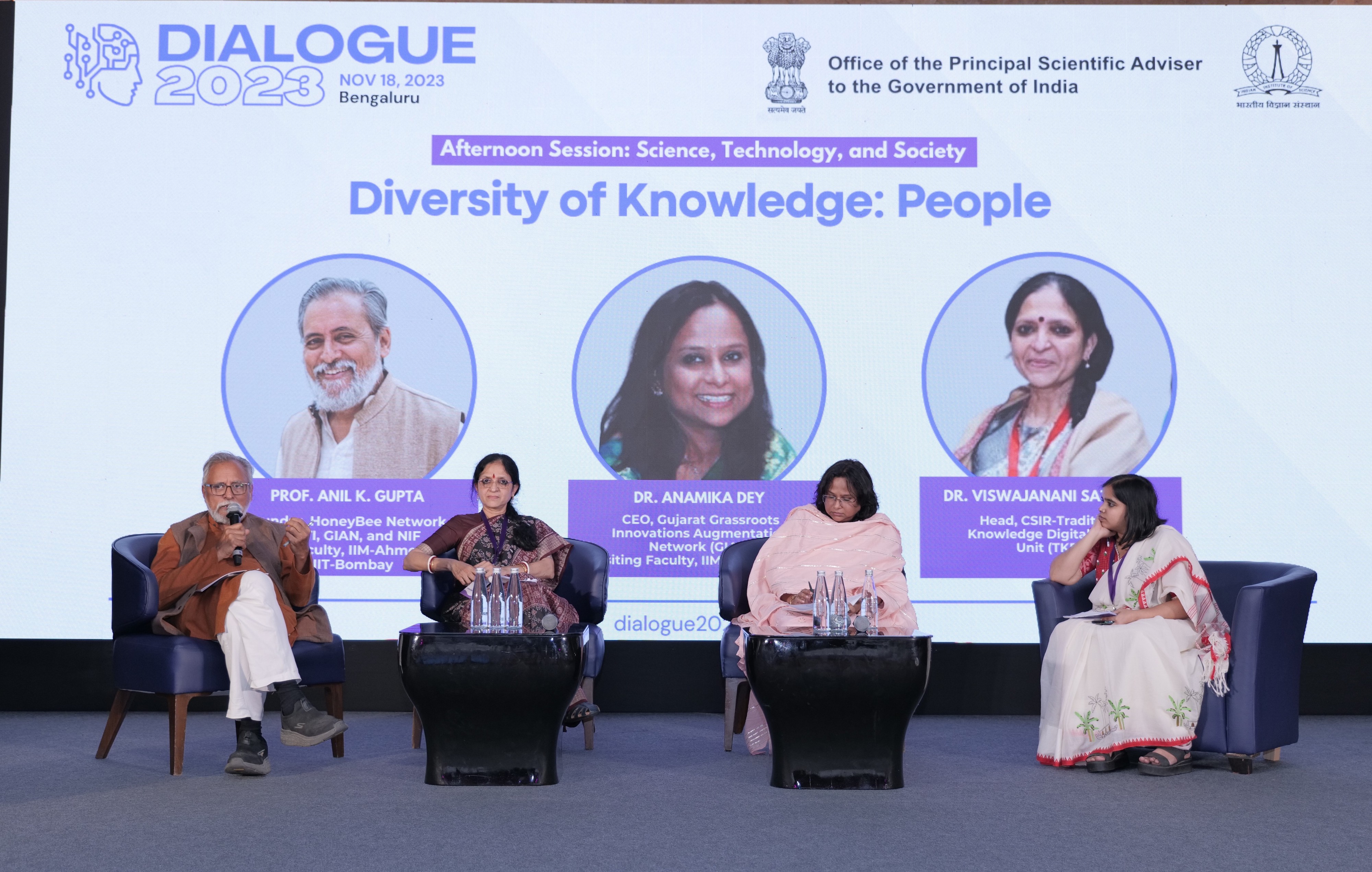
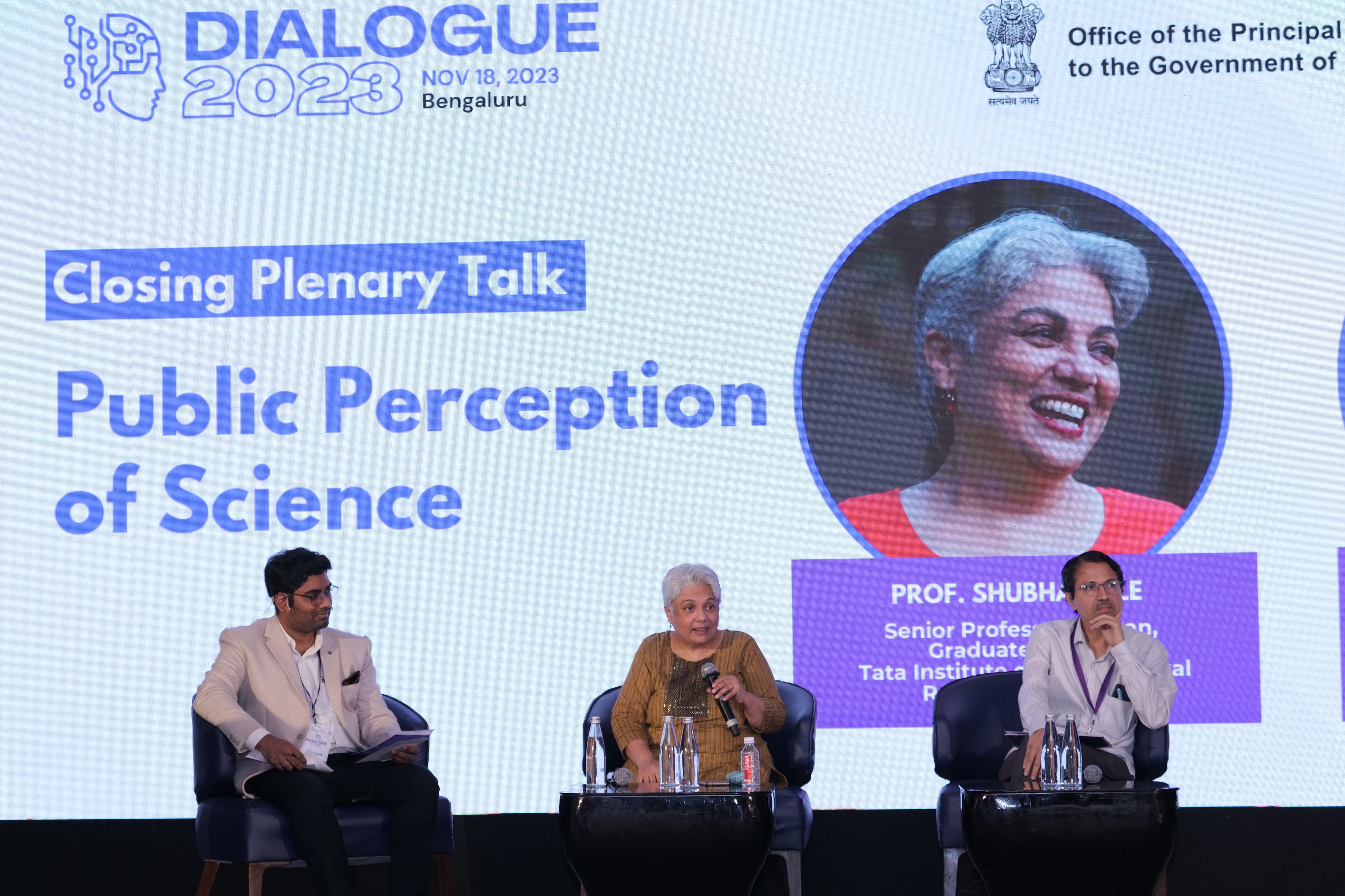
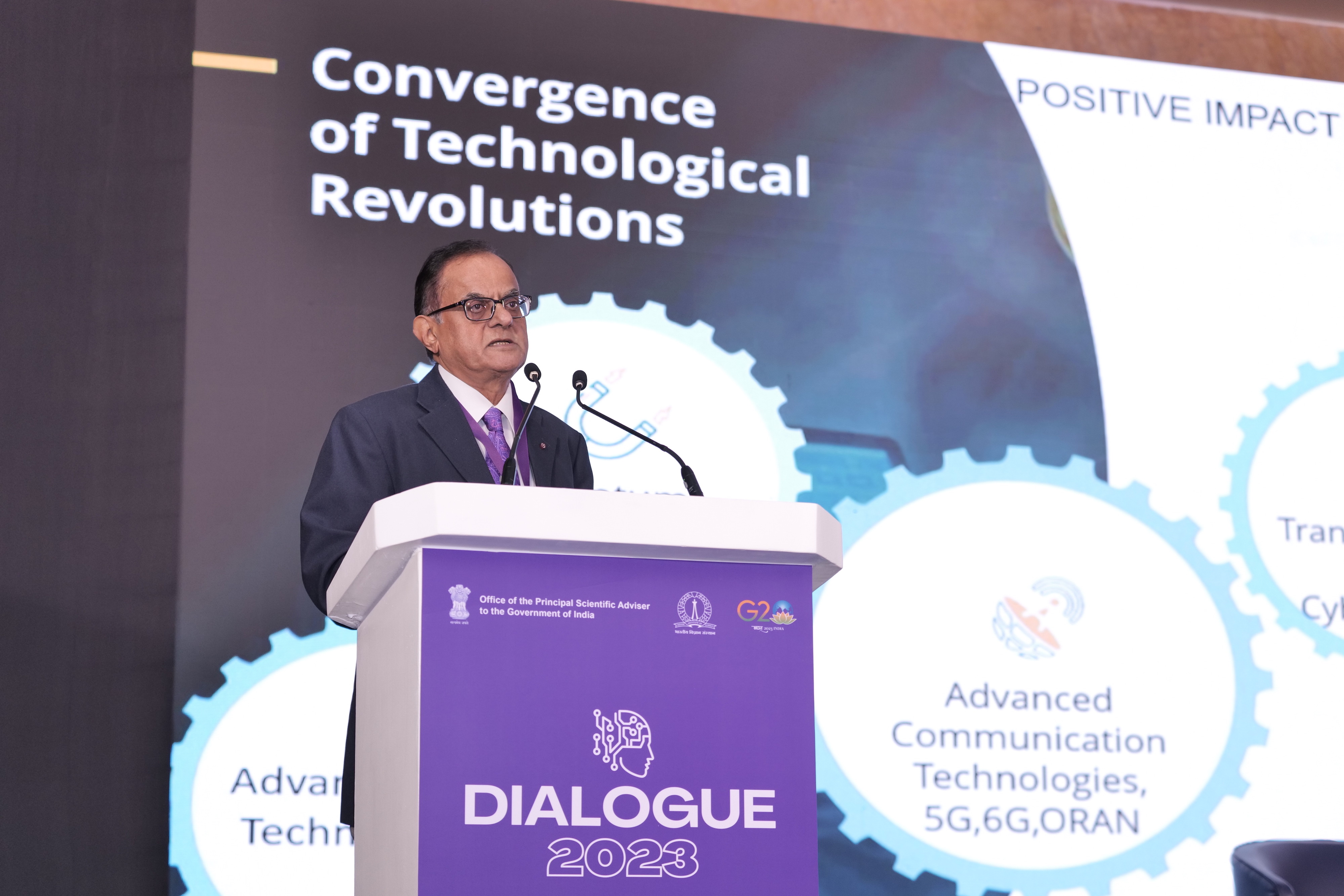
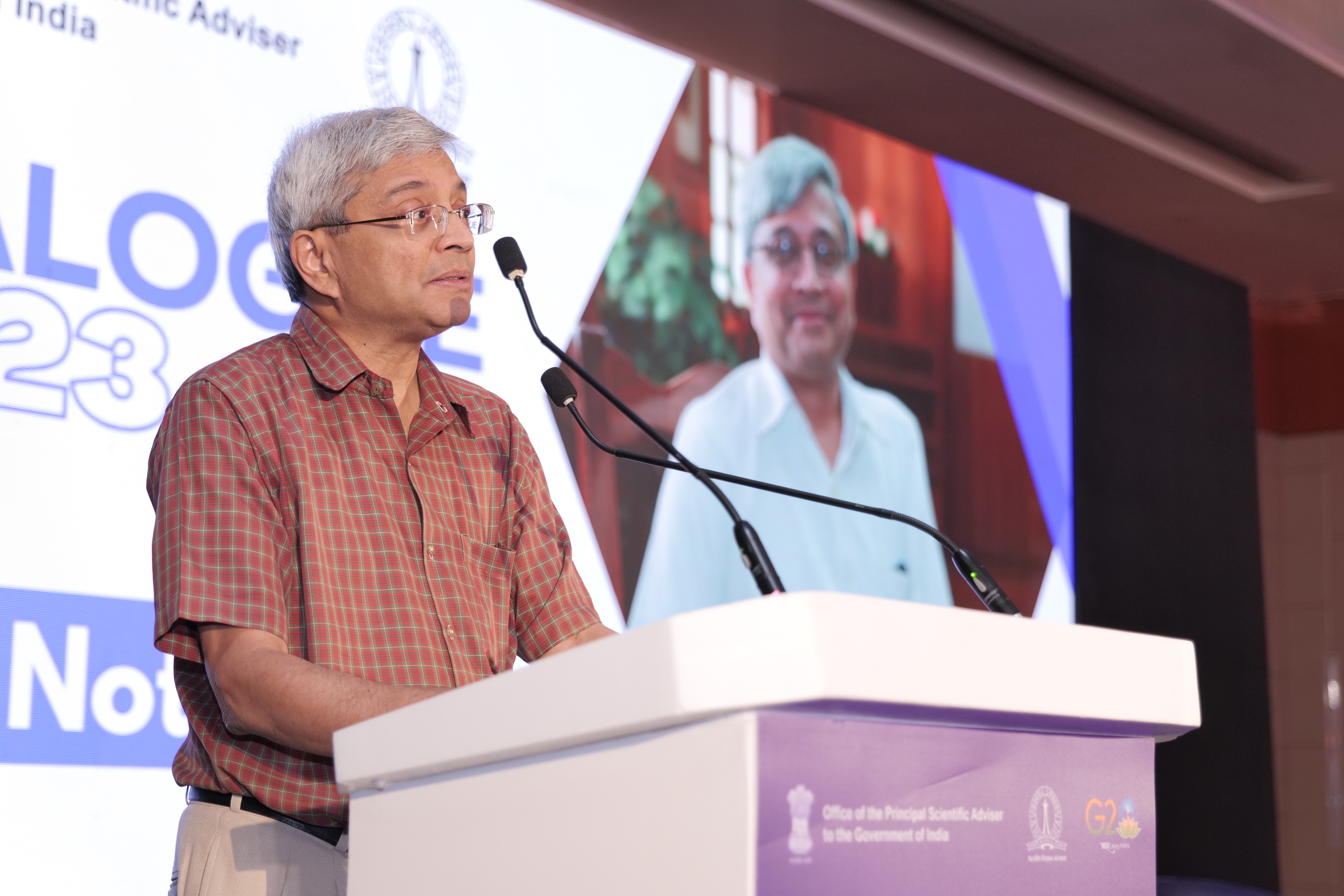
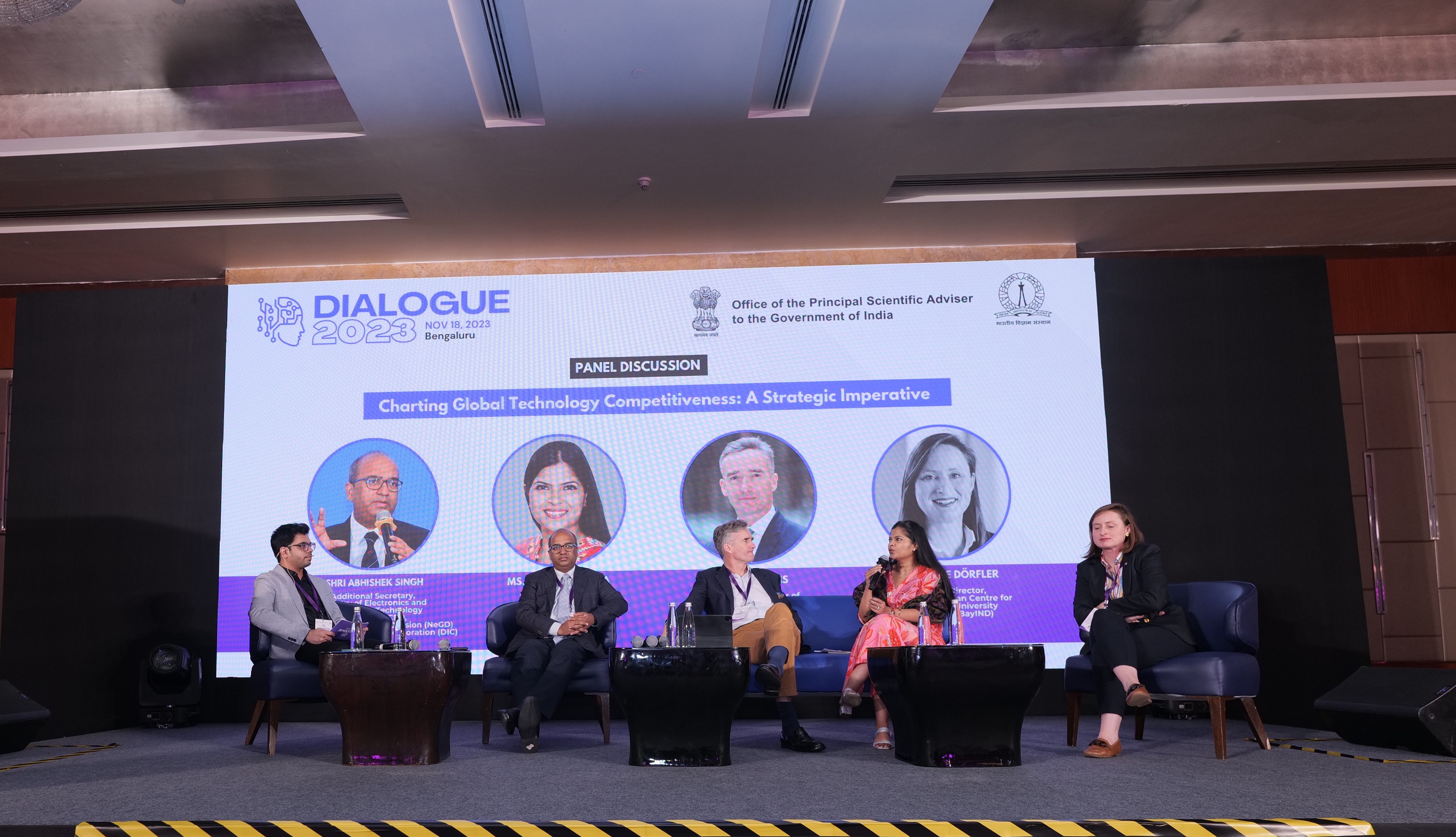
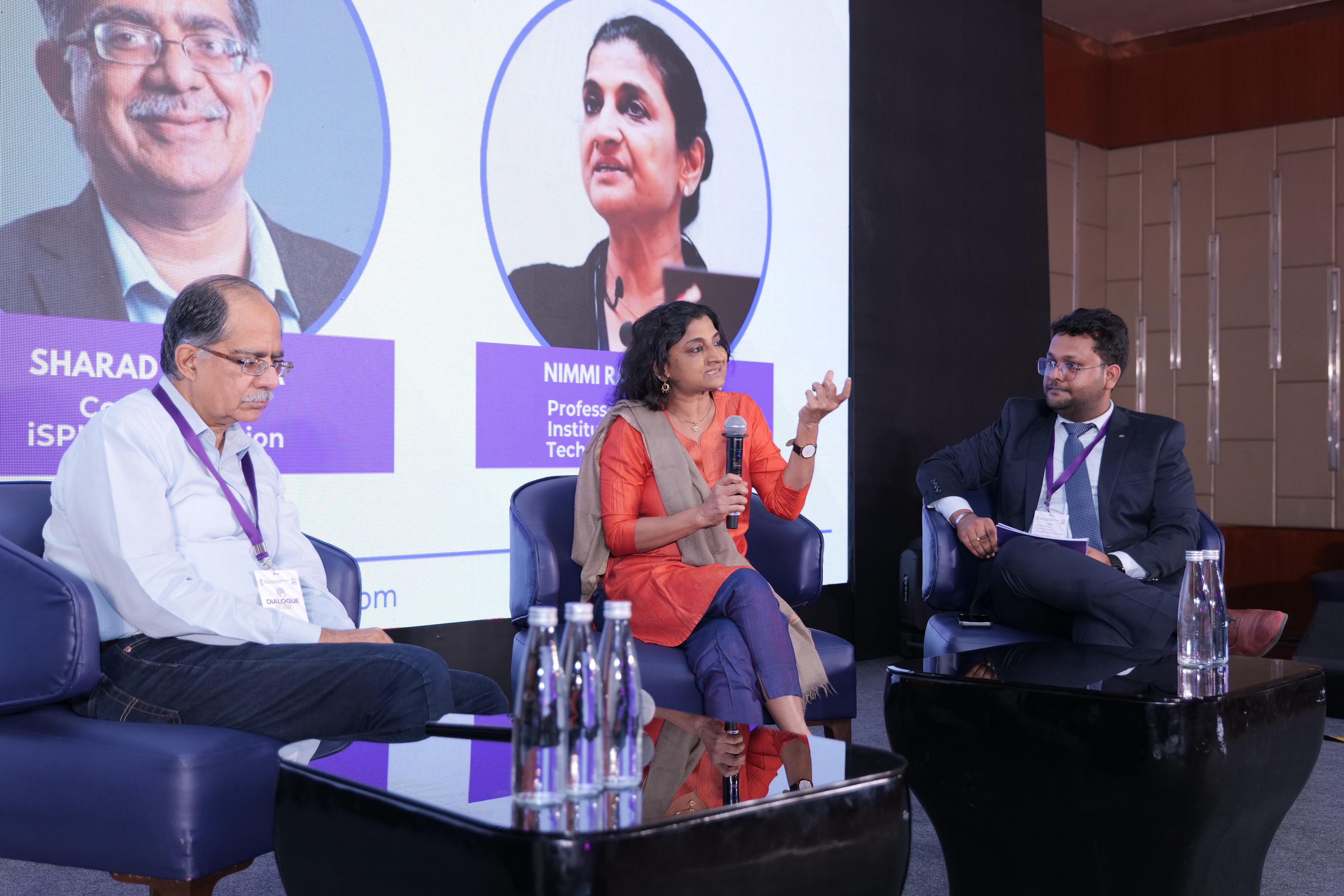
In the same session, the keynote address was delivered by Prof Ajay Kumar Sood, Principal Scientific Adviser to the Government of India and National Science Chair Professor at the Department of Physics, IISc. He highlighted the immense potential of emerging technologies like quantum computing and communication. “India has advanced significantly on its developmental goals,” he said. “Shaping technology futures involves not only technology development but also their adoption in various sectors.” He also stressed on the need to take into consideration ethical values and sustainability while adopting these technologies. The session was chaired by Prof TA Abinandanan, Professor at the Department of Materials Engineering, and Coordinator of the DST-Centre for Policy Research at IISc.
The second session was a dialogue on the ethical challenges and principles related to disruptive technologies like AI. The conversation focused on the intersection of technology, ethics and society, and drew attention to the need for the regulation of emerging technologies. The third session started with a special address by Mr Abhishek Singh, Additional Secretary, Ministry of Electronics and Information Technology (MeitY), who highlighted India’s digital growth and the impact of digital services like UPI. This was followed by a panel discussion on approaches to enhancing global technology competitiveness, and balancing international cooperation with national priorities when it comes to technology development.
The afternoon session centred on “Science, Technology and Society”. The first segment focused on “Diversity of Knowledge: Practices”. Spotlighting the handloom industry, speakers highlighted the need to move away from the classical view of hierarchy of science above other types of knowledge, and recognise the importance of indigenous knowledge systems. In the second segment, “Diversity of Knowledge: People”, speakers discussed policy gaps and potential pathways to make traditional knowledge more accessible. The historical lack of recognition of women as knowledge holders and creators was also highlighted.
The final session was a talk on “Public Perception of Science” by Prof Shubha Tole, Senior Professor & Dean, Graduate Studies, Tata Institute of Fundamental Research, Mumbai. The session was chaired by Prof Navakanta Bhat, Dean, Division of Interdisciplinary Sciences, IISc. “It is critical that the public perceives science as an important and valuable enterprise,” Prof Tole said. She suggested ways to improve science outreach at institutions, and the stressed on the need for scientists to think “beyond outreach” and engage meaningfully with people about the journey and process of science.
Office of Communications | news@iisc.ac.in







